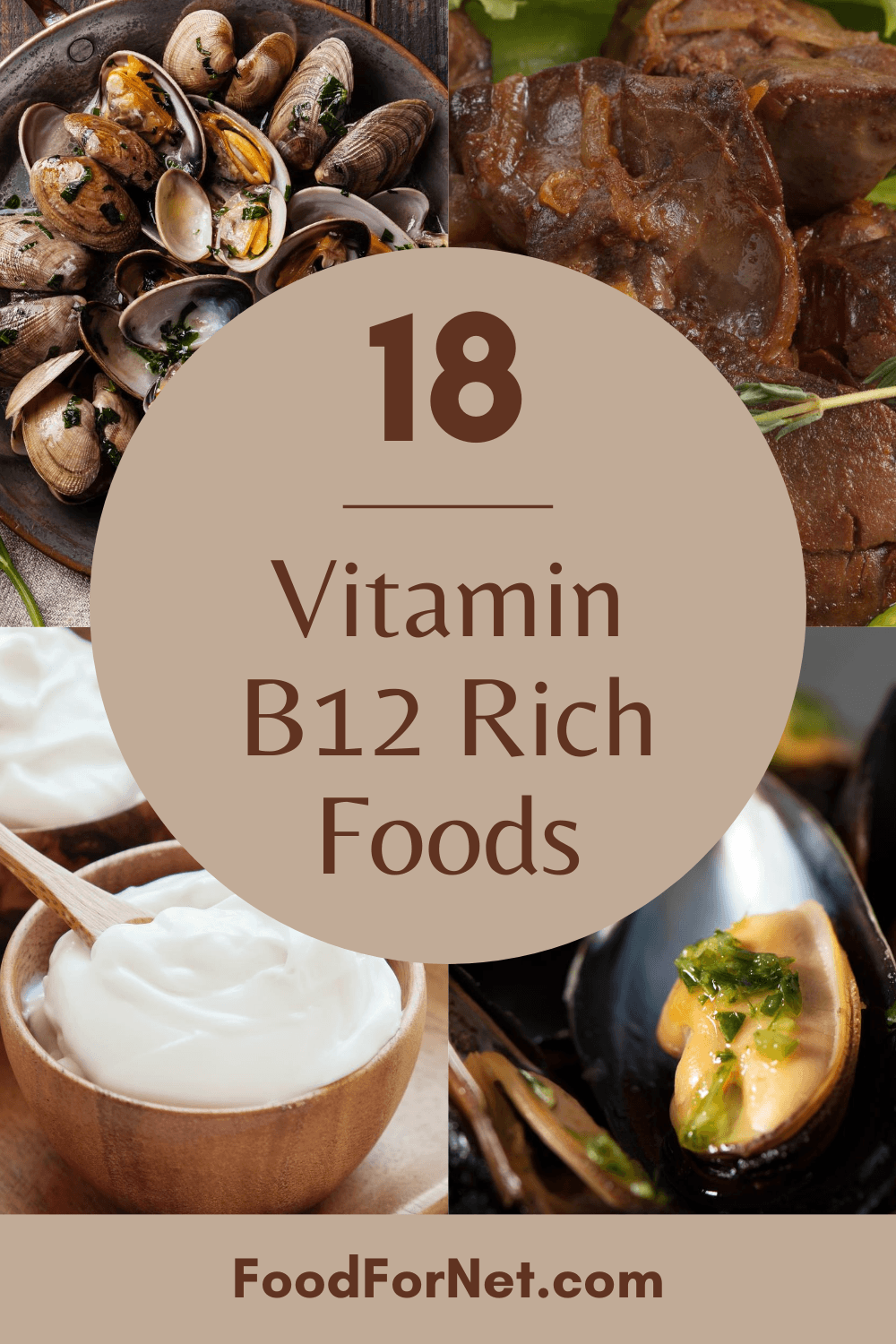
If you want to stay healthy, then getting enough vitamin B12 is critical. This B vitamin has various roles in the body, this includes helping with DNA production, brain function, and the creation of red blood cells. While there are various vitamin B12 rich foods to choose from, some people do end up deficient in this essential vitamin.
The target vitamin B12 intake is around 2.4 mcg for adults and slightly higher for women who are pregnant or breastfeeding. People over 50 years of age may need to supplement vitamin B12, as some will lose the ability to easily absorb vitamin B12 from food.
Thankfully, you don’t need to hit your vitamin B12 targets every day. Any excess vitamin B12 is stored in the liver, giving you a reserve of the vitamin in case you don’t get enough B12 some days.
This is useful, as most foods with B12 are animal-based, including meat and dairy products. Many people end up having meat some days of the week and plant-based sources of protein on other days, which can lead to changes in B12 intake over time.
As you’ll see from the list, vegans and vegetarians may struggle to get enough vitamin B12. Thankfully, there are some good fortified foods to turn to. The vitamin B12 in these is still absorbed well.
Vitamin B12 Rich Foods
- Cheese
- Clams
- Oysters
- Mussels
- Other Shellfish
- Herring
- Mackerel
- Salmon
- Canned Fish
- Eggs
- Liver
- Beef
- Other Red Meat
- Ham
- Milk
- Yogurt
- Fortified Foods
- Fortified Nutritional Yeast
Cheese
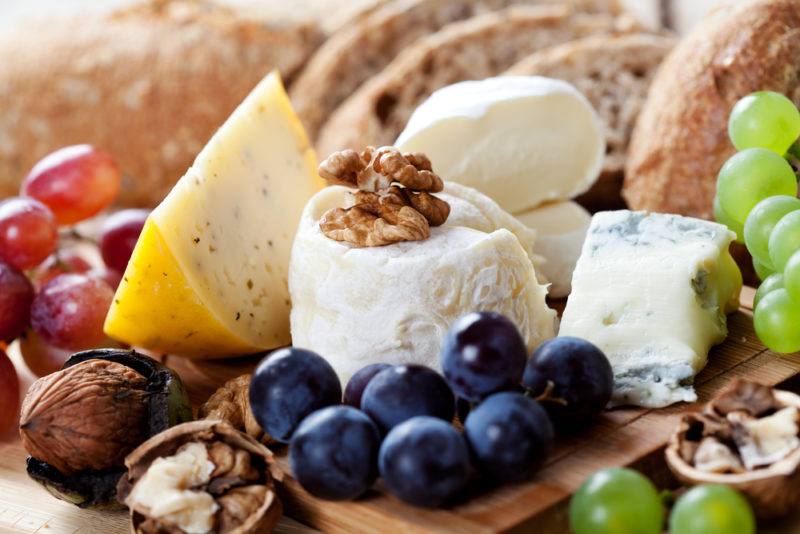
Cheese is one of the easiest choices for vitamin B12, as you can add it to many different meals or simply eat it as-is. You’re not forced to cook the cheese first and there are countless different types of cheese to try.
More importantly, cheese can be enjoyed by vegetarians, which isn’t the case for many of the other foods on this list. People who are lactose intolerant may even be able to eat cheese, as some types of cheese are low in lactose.
The B12 content does vary dramatically between different types of cheese. To complicated matters further, the values available are just estimates. The vitamin B12 content is likely to be a little different depending on who makes the cheese, the exact processes used, and even the batch.
Still, some types of cheese tend to be better than others. Out of the cheeses that we have data for, Swiss cheese tops the list, with a single ounce containing more than 35% of your daily vitamin B12 intake. Mozzarella, cottage cheese, ricotta, feta, and brie score highly as well.
This pattern suggests that you’ll generally get more vitamin B12 in fresh cheeses and those that haven’t been through much aging.
Clams
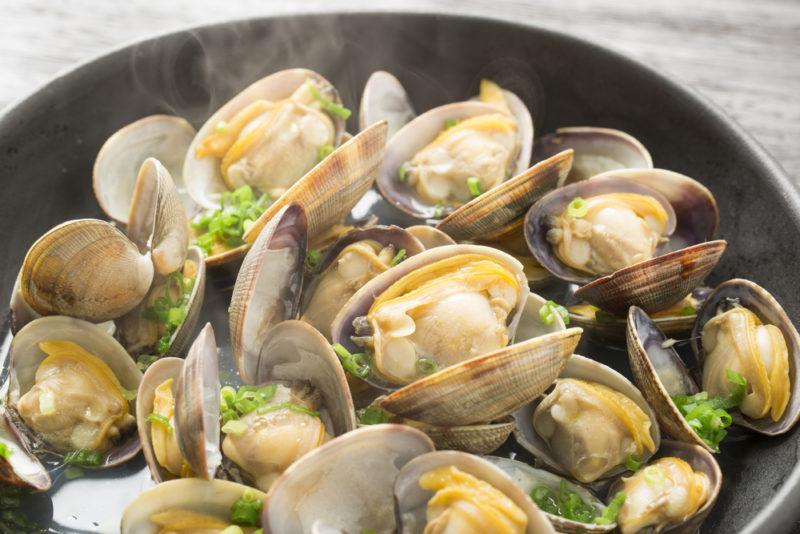
If you want a powerful source of vitamin B12, then clams are where it’s at. A 3 ounce serving of cooked clams provides you with more than 3000% of your daily intake for B12 (yes really, 3000%, that’s not a typo).
A 3 ounce serving is roughly 12 clams. This means you’re still getting around 250% of your daily B12 intake from a single cooked clam. How amazing is that?
Oysters
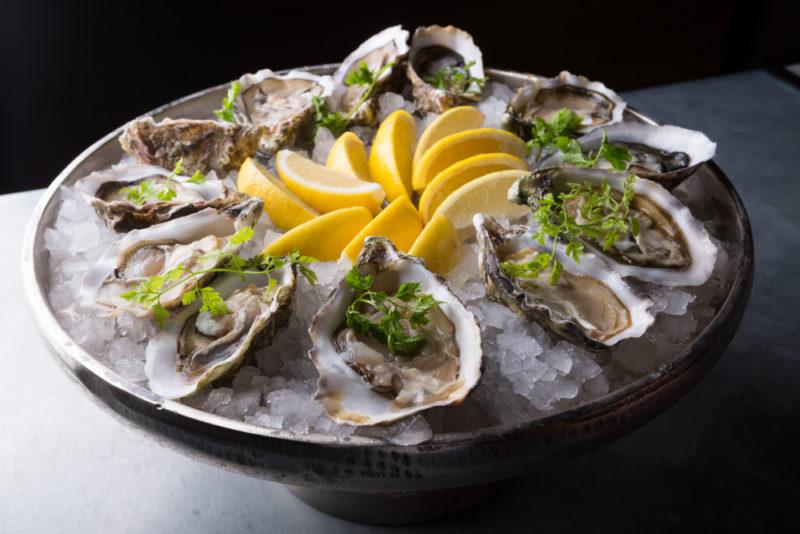
Oysters don’t offer as much vitamin B12 as clams, but they’re not to be trifled with either. This time, you get a little over 1000% of your daily intake from a 3 ounce serving. This serving size is roughly 3 oysters, giving you more than 300% of your intake from a single oyster.
Mussels
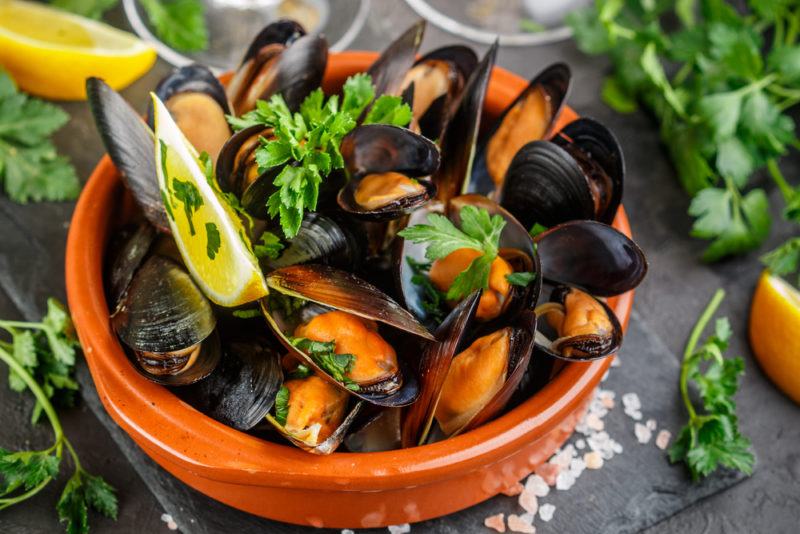
Mussels are the next notable type of shellfish for vitamin B12 content. The amount of vitamin B12 is lower again. Even then, you’re still getting around 850% of your required intake from a 3 ounce serving (which is roughly 5 mussels).
Other Shellfish
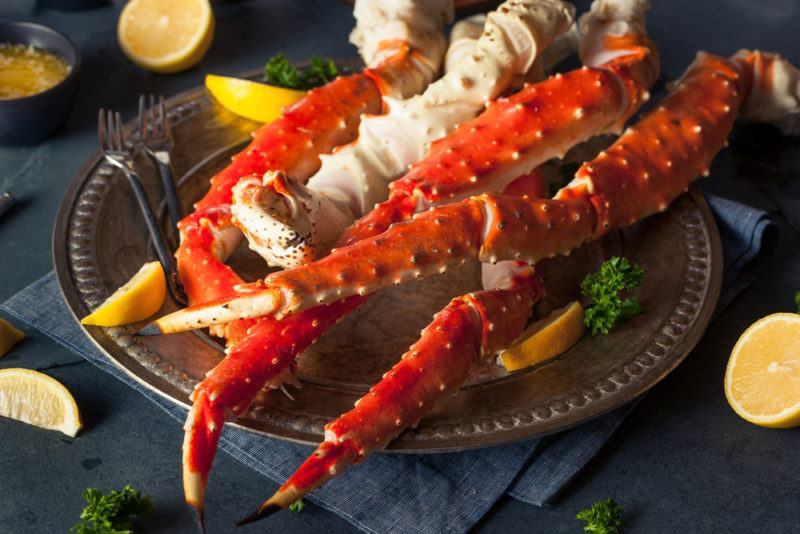
Clams, oysters, and mussels are the standout choices for vitamin B12, but in practice you can turn to any type of shellfish for your vitamin B12. Even the less impressive ones still give you a decent amount of the vitamin, so don’t worry if your favorite didn’t make the list.
Octopus is another interesting choice, although this is one that some people will love and others will hate. Crabs and whelks are also up there, with Alaskan king crab being the best type of crab for vitamin B12.
Herring
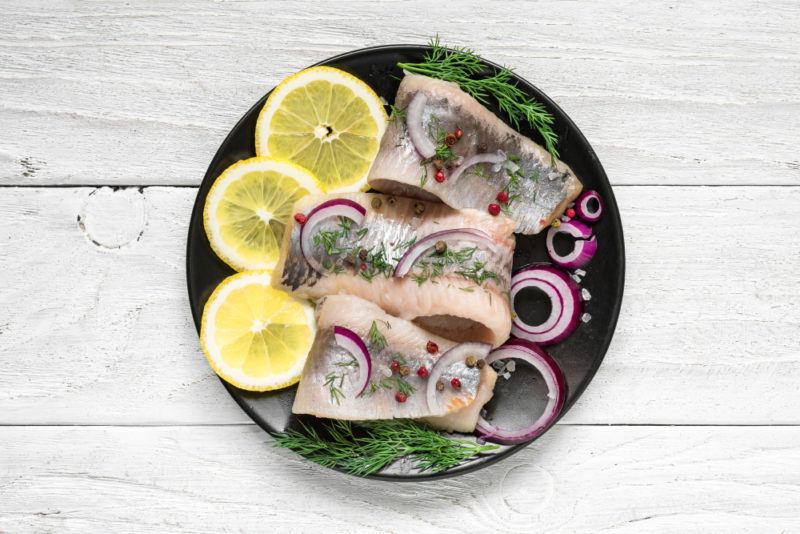
While the popularity of herrings seems to go in phases, it’s clear that this fish is a very good choice for health. Not only are herrings a source of omega-3 fatty acids, but they’re also one of the best fish choices for vitamin B12.
You can eat herrings in a variety of ways. One of these is as kippers, which is a classic English breakfast that has seen a recent revival. The term kipper refers to the way that the herrings are split using a butterfly technique. Kippers are a fantastic way to start the day, as the protein should help to keep you going for many hours.
Mackerel
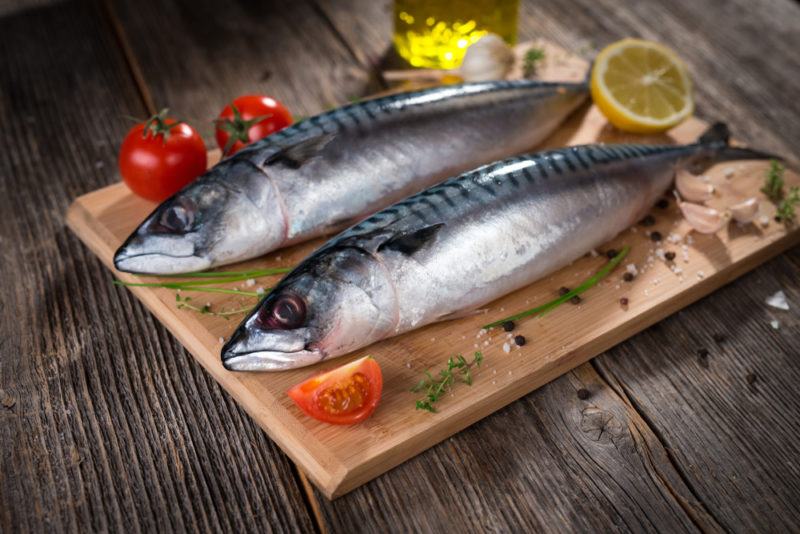
Mackerel is another fish that you can focus on for vitamin B12. A 3 ounce serving of the fish gets you more than 600% of your daily recommended intake. Not too bad for a single meal.
The amount of vitamin B12 will vary based on the specific species of mackerel that you’re eating, along with other factors, like the season and where the fish comes from. This pattern is true for most foods and nutrients. There will always be some variation.
Thankfully, you don’t need to know exactly how much vitamin B12 you’re taking in. A rough idea should be more than enough to help you balance your diet.
Salmon
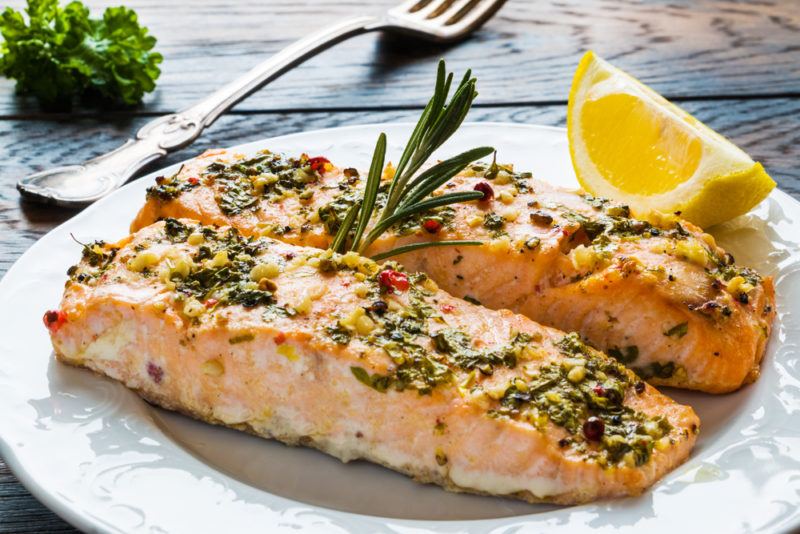
Salmon usually tops the list for healthy fish, but this time choices like mackerel, herring, and even some canned fish are better options for vitamin B12 than salmon.
Still, the difference in B12 doesn’t matter too much, as salmon does provide much more than your daily intake of B12 from a single serving. You’re getting many other important compounds too, including omega-3 fatty acids.
Salmon will be a popular choice for many people. It’s easy to find in stores, tastes good, and comes in various forms. If you’re not interested in fresh salmon, then you can focus on smoked salmon or canned salmon instead. You’ll get your vitamin B12 regardless of which you choose.
Canned Fish
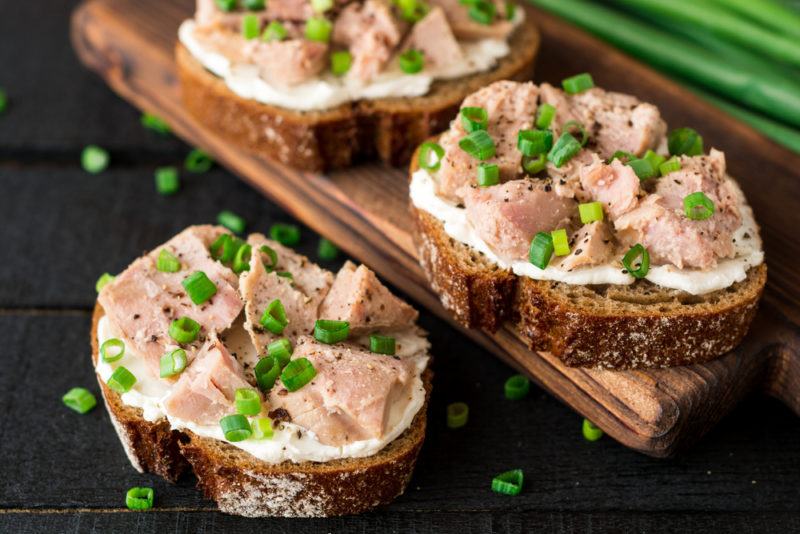
Canned fish still provides you with the important nutrients that you get from fresh fish. But, canned fish also tends to be convenient and is much more shelf stable than fresh fish. Canned fish will often be less expensive too, making it an easy way to get fish into your diet regularly.
Tuna would be the go-to choice for many people, partly because it is so cheap. Tuna is also impressive for vitamin B12. You’re getting just over your daily B12 intake in a can of tuna.
Canned sardines aren’t too shabby either and a can of sardines will provide you with far above your daily vitamin B12 requirement. Sardines are also useful as a source of calcium, as you’ll often be eating the soft bones at the same time.
However, you should be a little careful about relying too heavily on fish for your vitamin B12. Fish accumulates mercury and too much mercury can cause serious problems. While sardines are a very low mercury choice, tuna is more problematic. It’s best to stick to just one or two servings of tuna per week to limit your exposure to mercury.
Eggs

We can’t forget about eggs, as they offer so many nutrients. They’re also a nice change from meat and fish, and are a type of food that many vegetarians can eat. Besides that, eggs are such a versatile ingredient. They show up in countless recipes and there are many ways to cook them too.
It’s most realistic to call eggs a moderate source of vitamin B12. A large boiled egg, for example, contains roughly 25% of your daily vitamin B12 intake. This means that two large eggs should give you close to half of your vitamin B12 for the day.
While eggs had a poor reputation at one point, they do tend to be healthy. They’re a type of whole food, after all, one that contains a variety of nutrients. Eggs are high in cholesterol, but they don’t have the same impact on cholesterol that you see with other high cholesterol foods.
This suggests that unless you’ve been specifically told to cut down on your egg intake, you should easily be able to include them as part of a healthy diet.
Liver
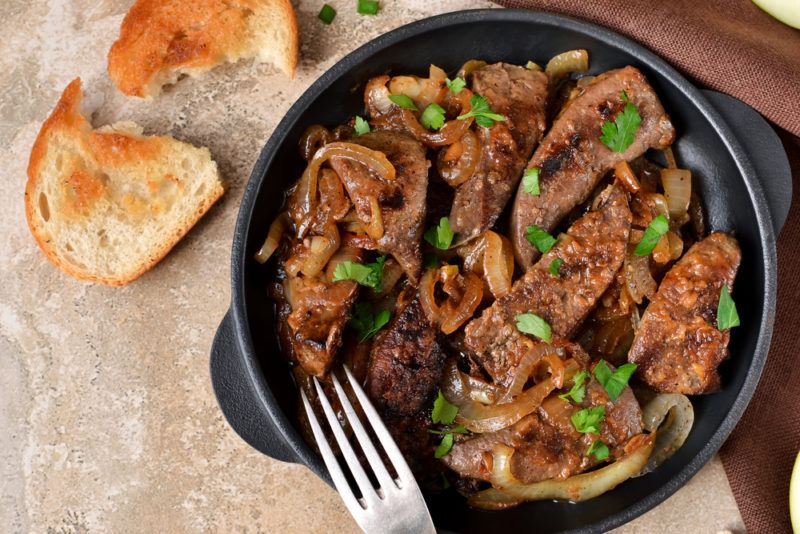
Let’s move away from seafood for a while. It should be pretty clear that, even though the amounts vary, any type of seafood will provide a decent amount of vitamin B12. The same is true for meat. Vitamin B12 is produced by animals, so any animal-based food should provide you with some of the vitamin.
Liver is, by far, the best choice. Both lamb liver and beef liver provide more than 2500% of your daily B12 intake for a relatively small serving size. This also means that products like liver pate will provide you with some of the vitamin.
Organ meats aren’t for everyone, but they are worth trying for yourself. The organs of an animal often provide a concentrated source of nutrients. This is especially true for the liver, which is high in vitamin A and iron as well.
Who knows? You might find a recipe or two using liver that you love.
Beef
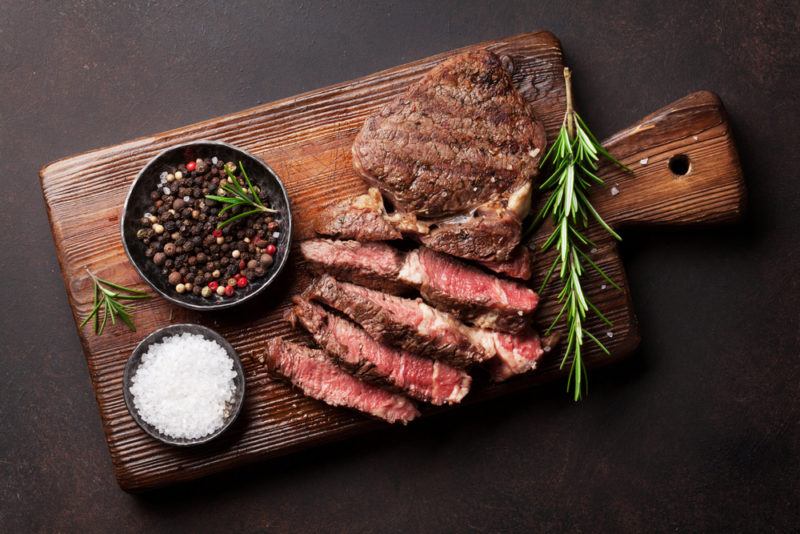
If organ meats don’t interest you, then beef is the next best thing. Cuts of beef vary dramatically in how much vitamin B12 they offer. Skirt steak tends to be the highest, providing more than 500% of your B12 intake in a 6 ounce piece of steak.
You don’t need to focus on the best cut of beef for vitamin B12, as you should get your daily intake of vitamin B12 from a serving of the beef, regardless of the cut that you choose. Even beef patties give you close to your daily target.
Other Red Meat
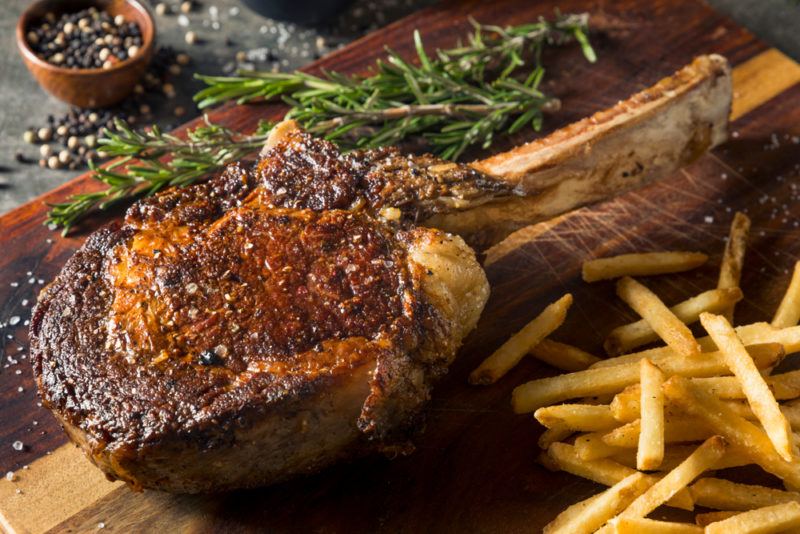
Lamb is the next most powerful type of meat, but you can also focus on less common types of red meat, such as ostrich, emu, venison, and buffalo. These all make it into lists of top foods for vitamin B12.
As was the case with beef, the vitamin B12 levels vary depending on the cut that you choose (and on the animal). You could pay close attention to vitamin B12 lists and work out the absolute best meat to rely on, but there isn’t much point to doing so – as the data simply isn’t reliable. There is too much variation in nutrient levels. It wouldn’t be possible to pinpoint exactly how much of any nutrient you’re getting in the steak on your dinner table.
Instead, it’s easiest just to think of any red meat as a good vitamin B12 source. If you eat red meat or fish regularly, then you’re probably already getting enough B12 without any further effort.
Ham
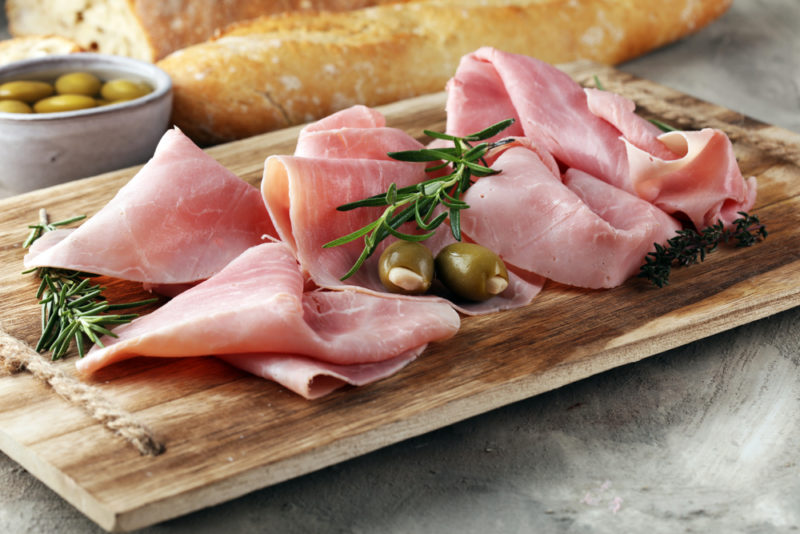
Ham might not contain as much vitamin B12 as red meat, but ham does happen to be much more practical. You can simply include a slice in a sandwich or dice some up for cooking, without worrying about cooking it first. This can be perfect in many situations.
While you won’t get all of your vitamin B12 from ham, a 3 ounce serving does contain around 25% of your daily intake, which isn’t too bad at all.
Milk
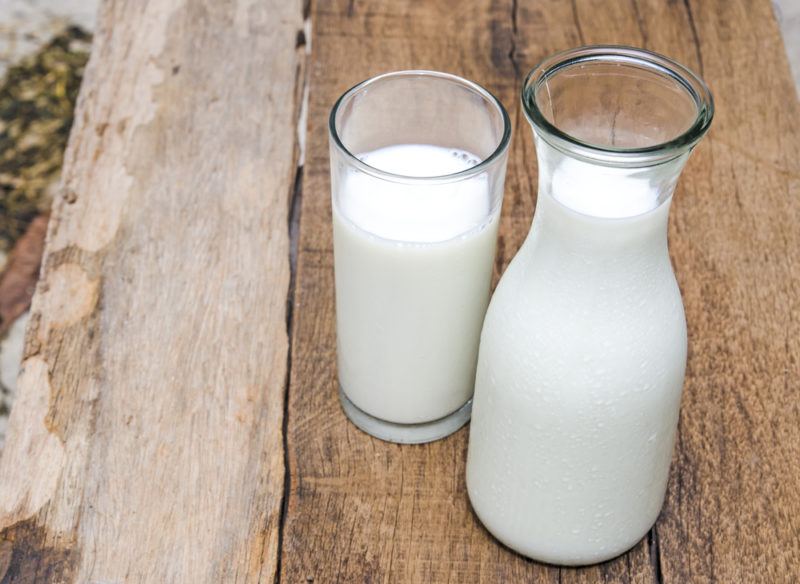
Milk is another non-meat source of vitamin B12. You get around half of your daily intake of vitamin D from a full cup of milk. Drinking the milk on its own would be an easy way to increase B12, but this isn’t your only option. You can also use milk as an ingredient in your meals.
In fact, most foods that are heavy in dairy will end up being decent sources of vitamin B12. You can even make meals that use multiple B12 rich ingredients, like a quiche that uses milk, ham, cheese, and eggs.
The vitamin B12 content of milk remains roughly the same regardless of the fat content of your milk. You’ll get the same benefits from full fat milk or low fat milk, which gives you the chance to choose whatever type of milk works best for you.
Not surprisingly, vitamin B12 shows up in cream as well. But, the amount of B12 is much lower, so cream isn’t a good source of the vitamin.
Yogurt
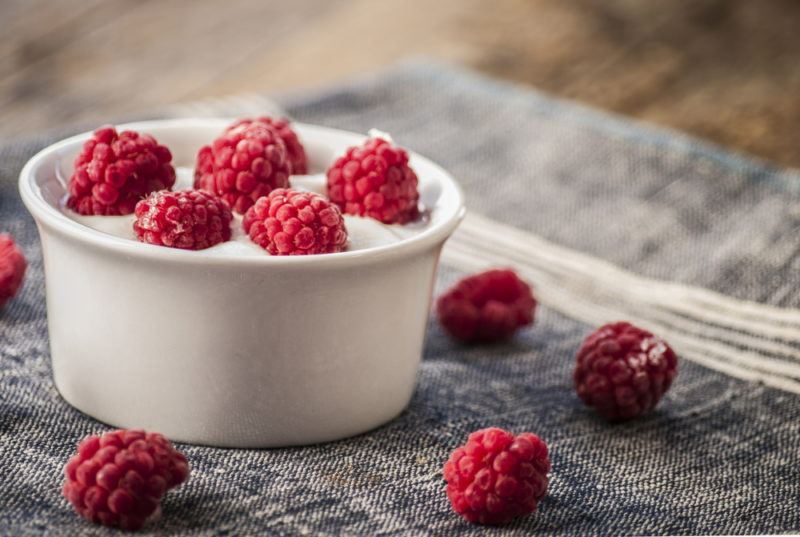
You can find vitamin B12 in yogurt too. The amount of B12 strongly depends on the type of yogurt that you choose. Greek yogurt tends to be one of the best choices and you’ll get more than 50% of your daily intake from a single container of the yogurt.
Greek yogurt has other advantages too, including the fact that it is high in protein. This makes it a satisfying choice, especially for breakfast.
You can even get some vitamin B12 from frozen yogurt, although the amount is often less than with other types.
Regardless of the type of yogurt that you want, spend some time to look at the ingredient labels. Some yogurts use relatively few ingredients and rely on active cultures, which help to promote your gut health. Other products rely on sugar and artificial flavors to create something that isn’t all that good for you.
Fortified Foods
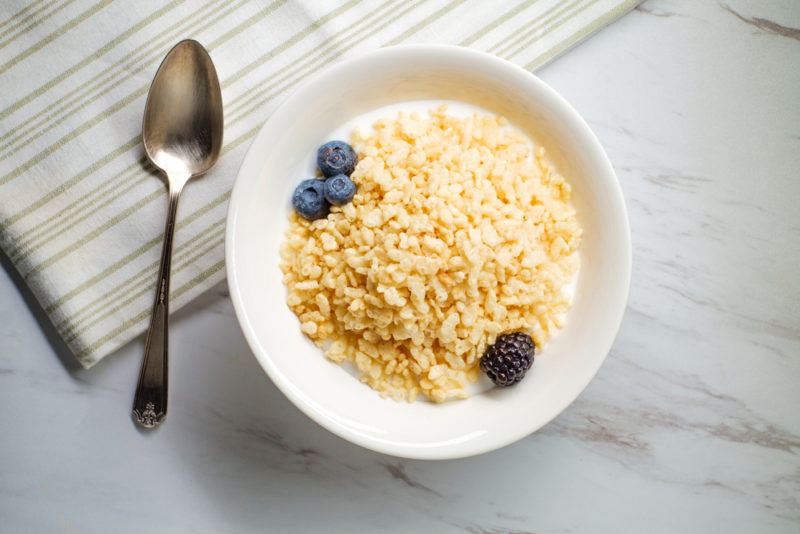
As you’ve probably noticed, vitamin B12 is almost exclusively found in animal products. This isn’t surprising, as the vitamin isn’t one that plants can produce.
Because of this, vegetarians and vegans will need to turn to fortified foods to get their vitamin B12 requirements. Fortified foods end up being important for other B vitamins as well.
Food fortification simply means that additional vitamins or minerals have been added into food. Sometimes these nutrients weren’t present before. In other cases, nutrients that were lost during processing might be added back in.
While it’s better to rely on whole foods for your nutrients instead of fortified foods, vegetarians and vegans don’t have any other choice for vitamin B12. Thankfully, the vitamin B12 in fortified foods can be easily absorbed.
Fortified cereal is the most common option out there. Most such products will contain a variety of added nutrients, so you’re getting more than just vitamin B12.
However, you do need to be careful about the products that you choose. Some cereals sound very healthy at first glance, but end up being full of processed ingredients and far too much sugar. Some will also be high in oxalates. This could be a problem if you’re on a low oxalate diet.
You may also find that some vegan-specific foods are fortified with vitamin B12. After all, it’s easy for vegans to be deficient in the vitamin.
Fortified Nutritional Yeast
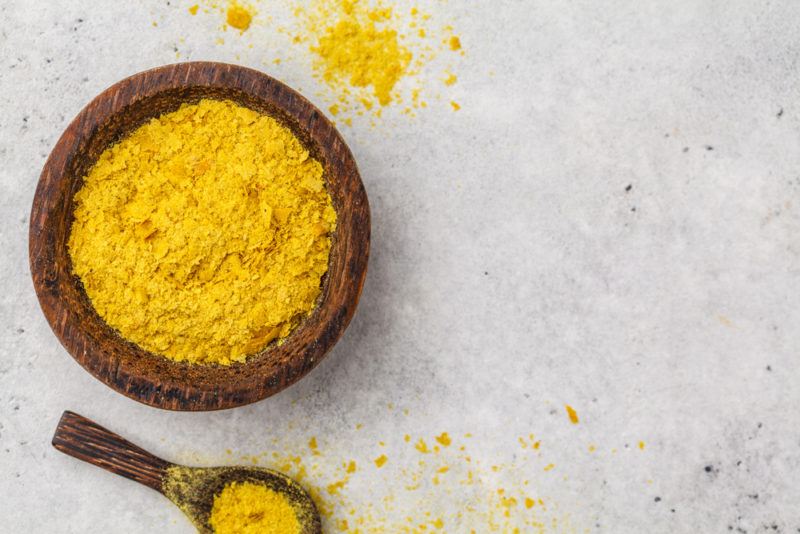
This one deserves a special mention. Nutritional yeast is a deactivated yeast product, so the yeast cells are dead and won’t interact with your recipes in any way. Yet, you’re still getting the nutrients that yeast has to offer.
Nutrients aren’t the only reason that this type of yeast is popular. The flavor is another reason, as the yeast has a somewhat nutty and cheesy flavor (even though it doesn’t contain nuts or cheese).
The cheesy flavor makes nutritional yeast an ideal cheese substitute for vegans. You’ll find it used in many recipes.
You will need to check the packaging for any nutritional yeast that you plan to use, as some brands fortify the yeast with vitamin B12 and others don’t.


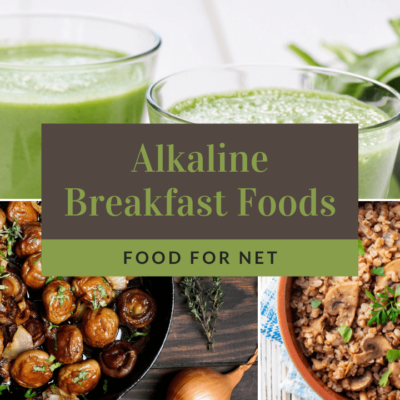
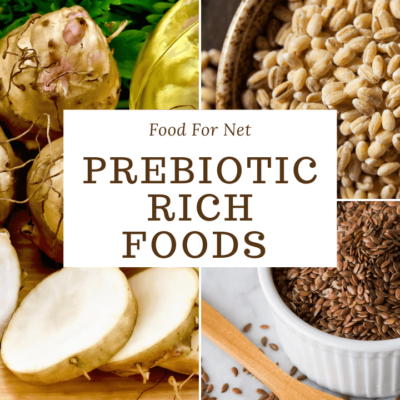
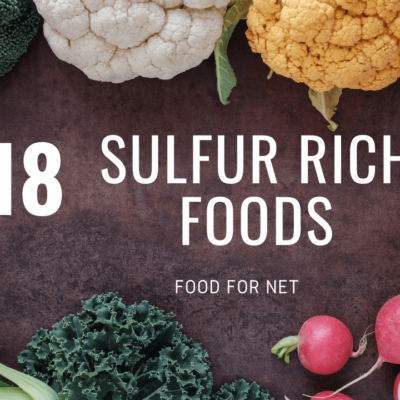
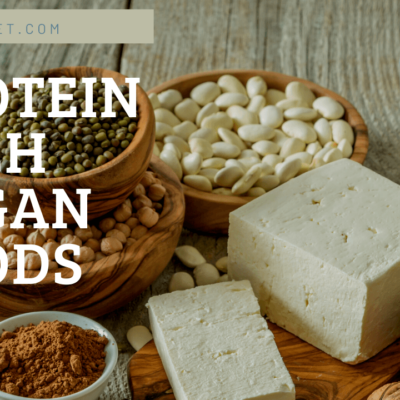
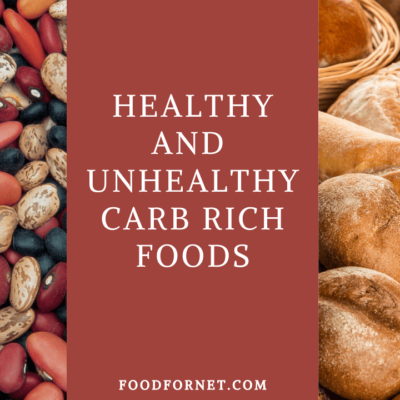
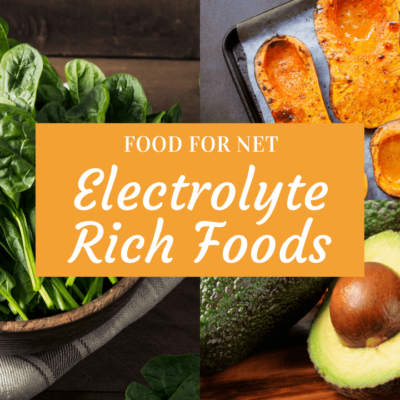
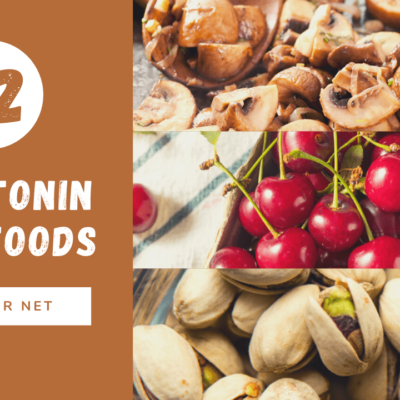
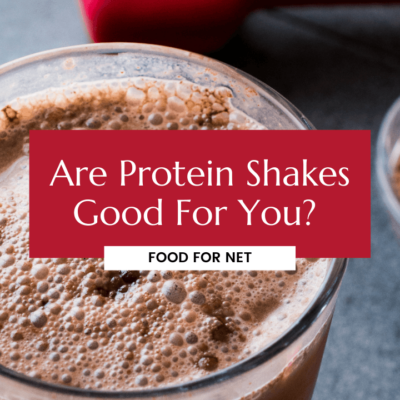
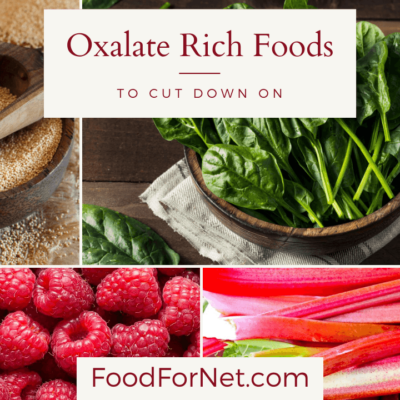
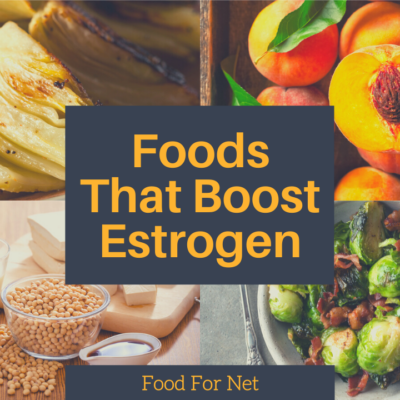
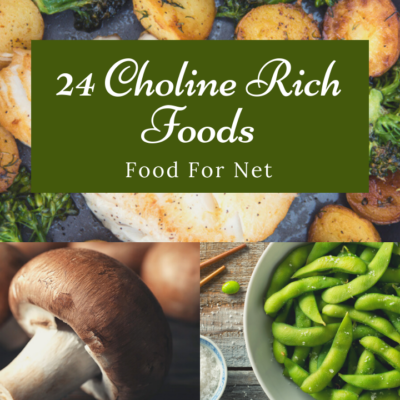
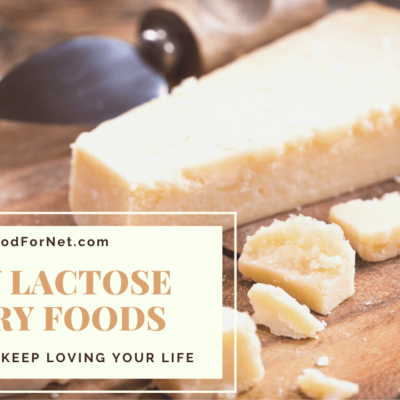
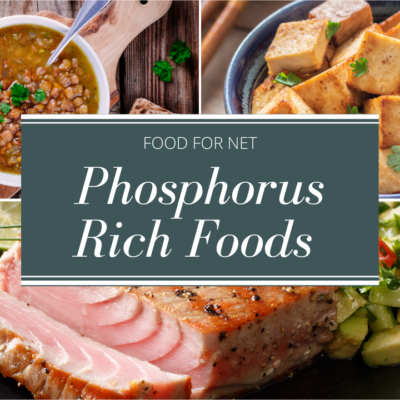

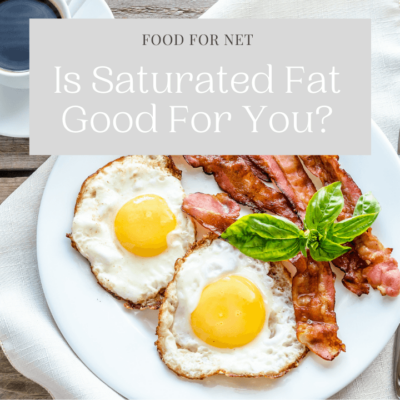
 17 Vitamin A Rich Foods That Prove How Easy It Is To Eat Well
17 Vitamin A Rich Foods That Prove How Easy It Is To Eat Well
Leave a Reply